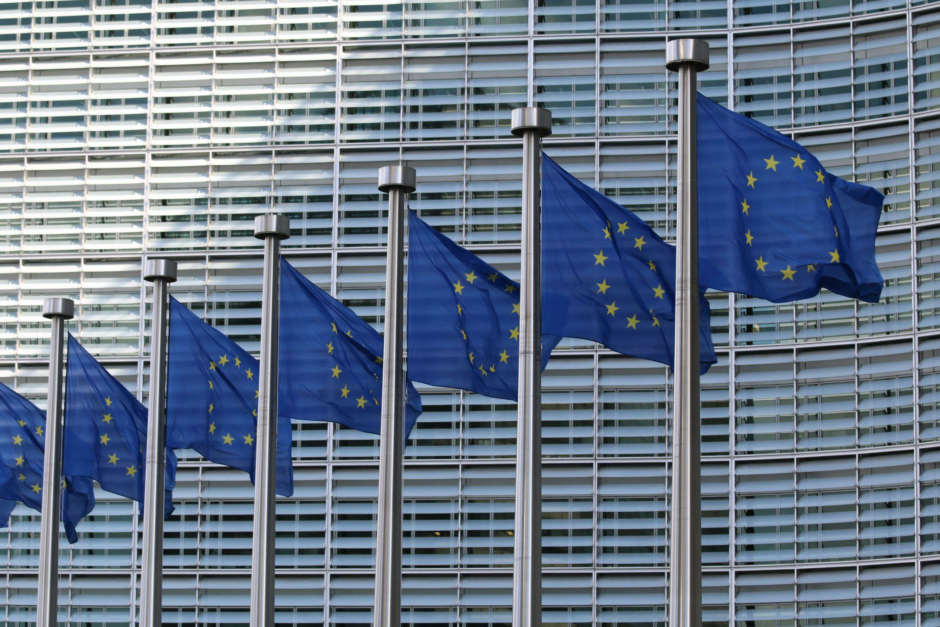The European Green Deal was presented as the way forward for Europe. Consisting of a large set of policies aimed to create the first climate neutral continent, the plan is one of the most ambitious of the European Union. However, only five years after the initiative, the Green Deal is already being watered down due to a combination of factors. The wind has changed, and the green ambitions of the European Union make way for global industrial competitiveness.
The European Green Deal (EGD) was adopted in 2020 with the primary goal to transform the European Union (EU) into the first climate neutral continent. This ambitious plan consists of a set of proposals encompassing energy, climate, transport, and policies to be implemented to achieve the goal of net zero.
Ursula von der Leyen said the following after the Commissioners agreed on the plan: “Our goal is to reconcile the economy with our planet, to reconcile the way we produce, the way we consume, with our planet and to make it work for our people.” In essence, the Green Deal is the European plan for creating a green competitive economy. “The European Green Deal is on the one hand about cutting emissions, but on the other hand about creating jobs and boosting innovation.” The scale of the plan is reflected in the financing of it: the Commission pledged to mobilise one trillion euros for sustainable investments in the next decade. Part of this money is to come from private investors, part of it is reallocating existing EU budgets to be spent on green goals.

New Politics
The 2024 European Election results changed the course of the Parliament and Commission. While the (far) right did not definitively win, they vastly increased their influence on the policy process. The longstanding cordon sanitaire – the taboo for center parties to collaborate with extreme right ones – seems to be torn down. The increased share of (far) right in the parliament has shifted the center parties’ policies towards them. Several center-right parties have become more cautious of EU legislation in climate policies, especially regarding agriculture. Von der Leyens party, The EPP, has since the 2024 elections increasingly flirted with the far-right, voting together on several occasions. This breaks the longstanding tradition between the EPP and Socialists & Democrats of collaborating.
In von der Leyens policy programme for the new Commission, she explicitly states that the Union “must stay on the course of all our goals, including those set out in the European Green Deal.” But simultaneously, the Commission published a new competitiveness compass. This document outlines the strategy for the EU to increase its global economic competitiveness based on recommendations made by Mario Draghi, the former Italian Prime Minister and former President of the European Central Bank. To achieve this competitiveness the document outlines, among other things, to ‘cut the red tape’ – deregulating and simplifying rules to make conducting business in the EU easier.
The call for deregulating the complicated EGD is widespread. Donald Tusk, Prime Minister of Poland, posted on X that “The revolt against regulation is inevitable! Whether someone in the EU likes it or not. The time is now!” This mindset seems to be the new zeitgeist across the Union. While the commission itself rejects the term deregulation – preferring to call it simplification – member states are embracing deregulation as the new mantra. Czech deputy trade minister Martin Frelich said “Deregulation is the key word of the day.”
New Policies
Already, policies under the EGD are now being watered down for deregulation and increased competitiveness. Presented in 2020 as a flagship element of the EGD, the Farm to Fork strategy was the green policy for agriculture in the EU. The aim was to make food more sustainable by changing production, distribution, and consumption. This strategy was contested from the start, and four years after the announcement of the highly ambitious plan, many of the policies it promised to implement have been withdrawn or forced to be dropped. Due to a combination of EU wide farmer protests, a strong lobby from the agri-industry and concerns about food security after the invasion of Ukraine, the green ambitions for the agricultural industry became an afterthought.
The neglect to implement proposed policies is heavily criticized by environmentalists who argue that the Farm to Fork strategy in the long run would benefit the farmers as well as the environment. In response, a Commission spokesperson stated that the issue needed depolarization and dialogue with all stakeholders.
A new vision for agriculture is presented by the new Commission, indicating moving further away from the Farm to Fork strategy, officially abandoning the most ambitious elements of that strategy in favor of simplification. “We need an approach that rewards farmers rather than to put too much pressure on them,” said the agriculture Commissioner Christophe Hansen.

New regulations for the automotive industry also show the new priority of the EU. New calculation methods make reaching the emission targets much easier for the industry. About this, von der Leyen said the following: “We have to stick to the agreed targets, but we need to listen to voices who ask for more pragmatism and technological neutrality.” For the deeply troubled industry, this is a welcome change, as failing to reduce their emissions could lead to fines of up to 15 billion euros. Green parties argue that this new regulation will not increase competitiveness, but put us far behind China on the EV market instead.
The new Clean Industrial Deal presented in late February 2025 is another policy proposal that appears to put competitiveness over green ambitions. Aimed to revive European heavy industry, providing clean affordable energy, and manufacturing climate-friendly technology.
Geopolitical shifts
The current trend of competitiveness over green goals is also influenced by non-European actors. The 2022 energy crisis is a striking example, where war on the European continent led to a spike in energy prices. Suddenly, the EU realized its dependence on foreign powers for its energy supply. This is also the case in the green transition. The EU is highly dependent on China for realizing the green transition goals, and increasing its own (green) industry would lower the dependency. The recent hostility from the President of the United States (US), Donald Trump, to the EU, has taken the transatlantic relations to a low. The EU
now has to become more independent from the US. In this light of geopolitical shifts, the competitiveness agenda of the EU can be understood as necessary. The results of these shifts can have both a positive and negative effect on the EGD, while they could drive up EGD efforts, they can equally put a pause on all green efforts in favor of (short-term) competitiveness goals.
It is clear that the new Commission has ‘simplification’ at the core for new policies rather than ‘sustainability’. While insisting that the original EGD principles and goals remain unchanged, the Commission’s attempts to increase European competitiveness put green principles in the backseat. Critics argue that in the long run this new strategy will not help the EU remain competitive in the world.

